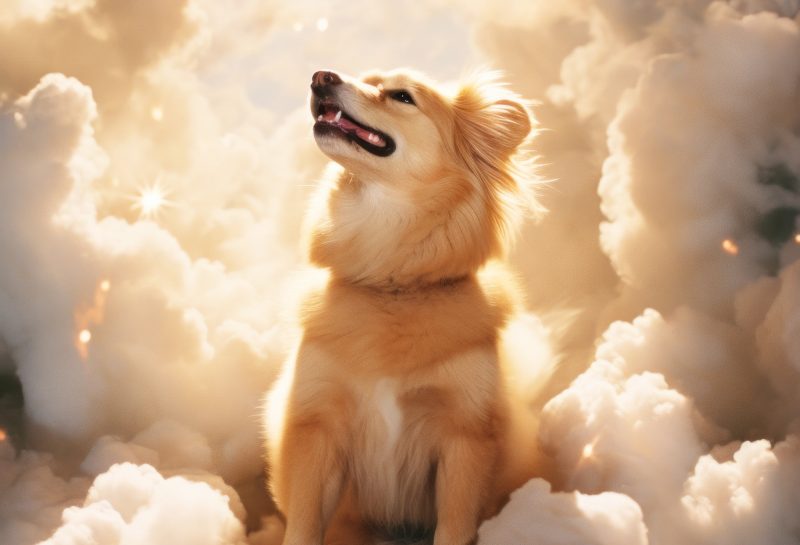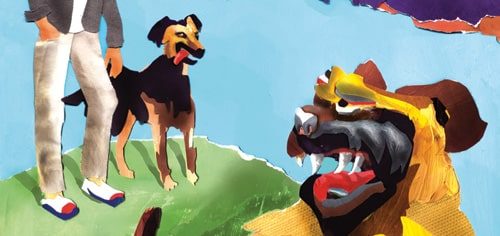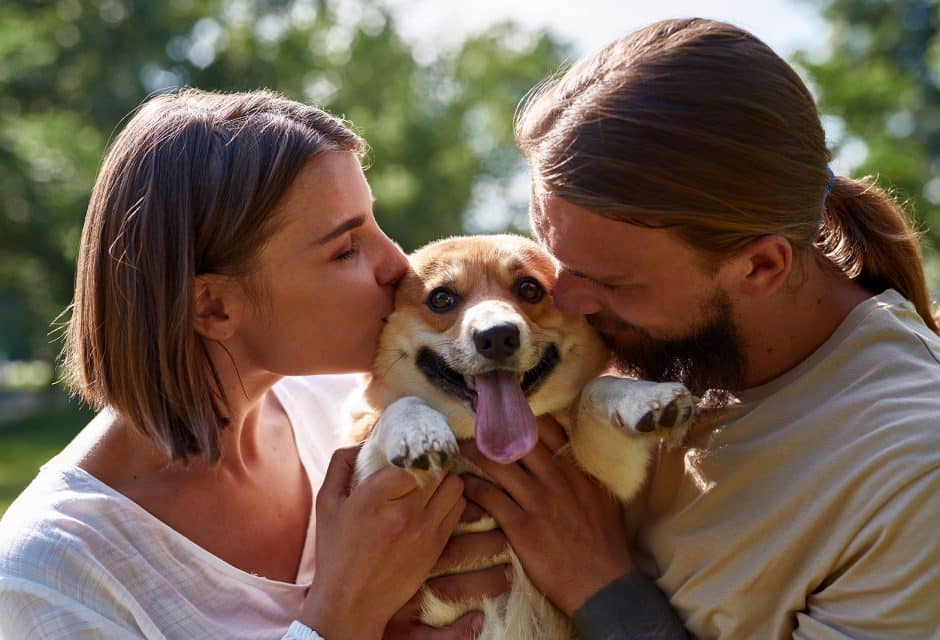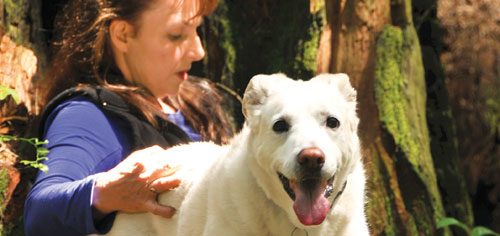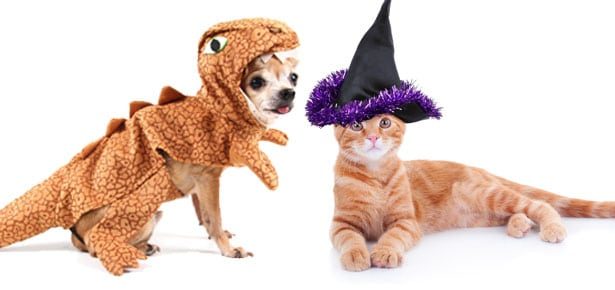
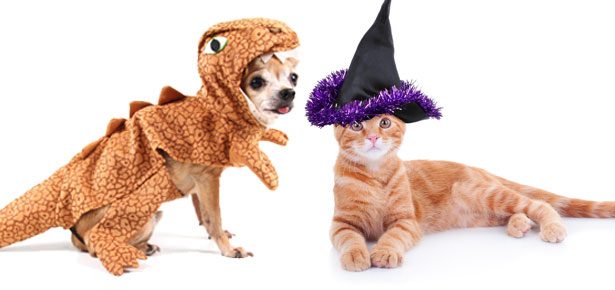
Pet Costumes
The Good, The Bad And The Ugly
If you’re like many pet owners, finding the perfect Halloween costume for your pet is almost more exciting than finding your own. Seeing your dachshund dressed as a hot dog or your kitten prancing around in a super-man cape can add even more fun to the holiday. Just keep in mind that while a costume can be cute and funny to you, your pet may not agree.
“In general, tolerance of costumes is pet dependent,” said Dr. Stacy Eckman, clinical assistant professor at the Texas A&M College of Veterinary Medicine & Biomedical Sciences. “Some pets will tolerate them, and others will not.”
If Fido appears indifferent towards being dressed as a giant spider or pumpkin, then suit him up. However, there are still a few safety guidelines to consider when choosing the perfect costume.
“Make sure that the costumes do not obscure their vision, do not block their nose or mouth so they cannot breathe, and that they do not trip over them,” said Dr. Eckman. “Avoid anything that encircles the head or neck or that blocks their nose and mouth.” Any attachments that they can rip off and swallow, such as extra limbs or bones, can also be hazardous.
Fur-safe sprays are generally okay to use for changing the fur color, as long as they are not applied too close to their eyes. Make sure that the spray is designed specifically for animal fur and that you carefully check the labels for any discrepancies.
It is smart to put the costume on a few times prior to the holiday to see how your pets react to being in it. If they are uncomfortable, it should be easy to tell.
“If a pet isn’t comfortable in a costume, they may work vigorously to remove it, constantly scratching or pawing at it,” said Dr. Eckman. “It may affect the way they walk and move, becoming a tripping hazard, and can even affect their breathing, causing them to pant or become anxious.”
To ensure that your pet doesn’t become uncomfortable after wearing the costume for a while, they should be supervised at all times. If they do begin showing any signs of discomfort, remove the costume for a while and let them roam around out of character.
Halloween costumes are not the only thing that may cause pets anxiety during this season. Some house decorations should also be avoided if your pet seems unnerved by them.
“Loud, flashy decorations with lights and sounds may be stressful for certain pets, causing them to harm themselves,” said Dr. Eckman. “Dry ice, often used for the ‘smoking cauldron’ effect, may also be dangerous if the ice itself comes into direct contact with their skin.” Depending on your pet, fake bodies or body parts may also be dangerous, as they can cause choking hazards or gastrointestinal obstructions if they try chewing on or ingesting them.
As long as your pet is comfortable in a costume, dressing them up can be fun for the whole family. Follow these general safety guidelines and Fido is sure to be in for a howlin’ good Halloween.
Join the newsletter and never miss out on dog content again!
"*" indicates required fields
By clicking the arrow, you agree to our web Terms of Use and Privacy & Cookie Policy. Easy unsubscribe links are provided in every email.
